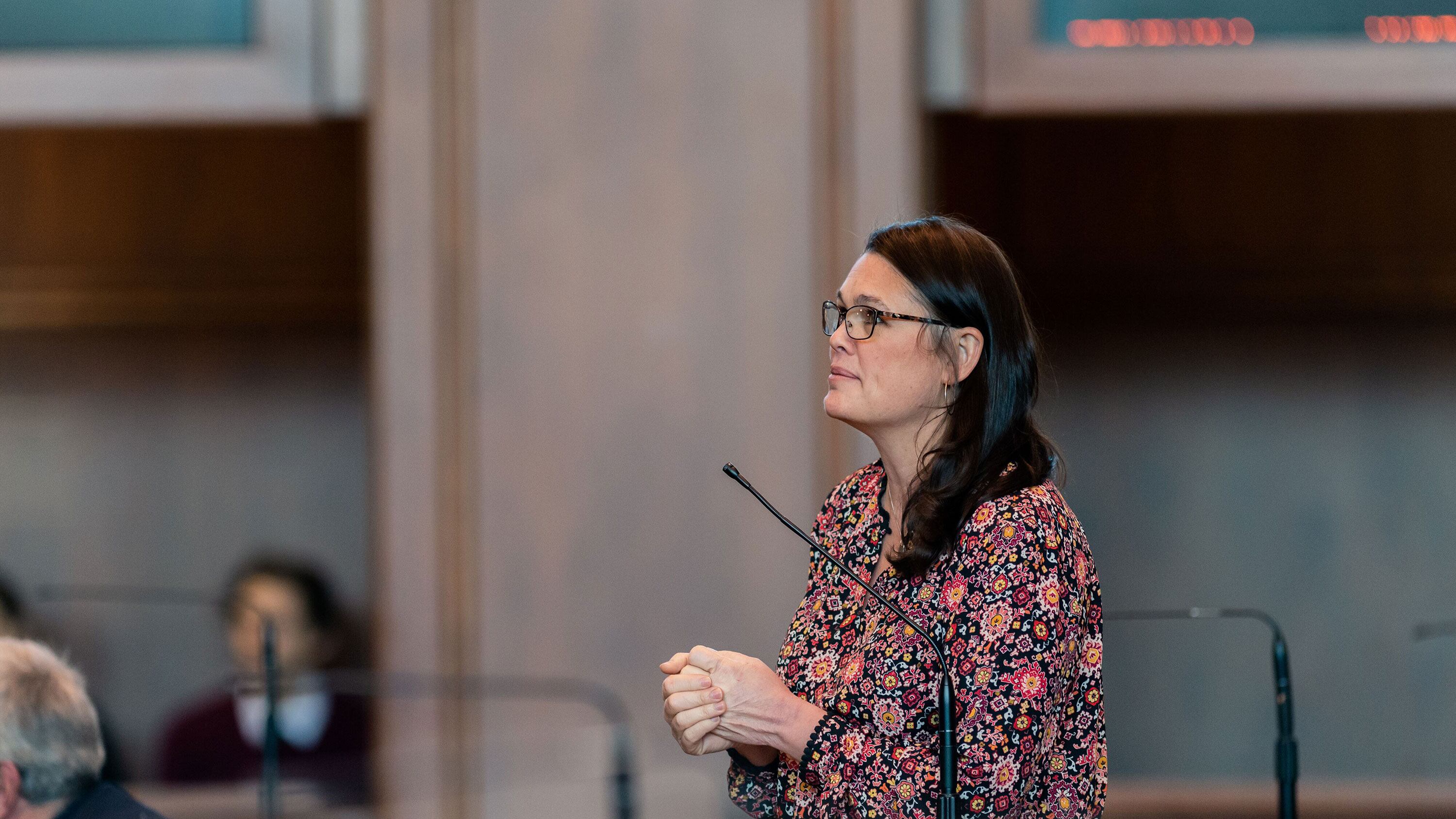The reckoning that currently grips the Oregon Capitol began when Sen. Sara Gelser (D-Corvallis) said something. But even she didn't realize how many women she was speaking for.
In 2016, Gelser first registered a sexual harassment complaint against then-Sen. Jeff Kruse (R-Roseburg), who she said repeatedly subjected her to "unwanted physical contact."
Gelser served as a primary source for an Oregon Bureau of Labor and Industries investigation. After months of investigation, including a bitter court battle with House Speaker Tina Kotek (D-Portland) and Senate President Peter Courtney (D-Salem) over records and other information the leglislative leaders didn't want to provide, BOLI in January issued a report finding serious and pervasive sexual harassment in the Capitol. Those findings led the Legislature to fork over more than $1.5 million in legal fees and payouts to eight women.
In the wake of that settlement, WW caught up with Gelser, 45, who chairs the Senate Human Services Committee. We talked to her about her campaign for accountability, the pushback she's received from Democratic women, and what she thinks of Courtney, who is on medical leave but remains at the center of the furor.
WW: Looking back, what aspects of this process surprised you?
Sara Gelser: Certainly, the first was how significant the behavior was that Kruse engaged in—how widespread it was and how damaging it was. I felt a lot of guilt about that, especially as I learned about the staff and interns and the lobbyists he'd harassed. It just made me question how often that type of behavior is overlooked.
What's made you angry throughout this process?
I was angry with the way legislative leadership used confidentiality for women as a shield to protect the Legislature from embarrassment and liability. It was absolutely appropriate to argue with BOLI about the breadth of the subpoena. However, refusing to cooperate altogether while citing the privacy of the aggrieved women who could potentially benefit from the investigation made no sense to me.
I am also frustrated every time I hear leadership say the Legislature has no power to take action when a member engages in egregious behavior. That suggests we are resigned to the idea that those who work in our building must simply accept harassment as a condition of employment. That is not acceptable. Regardless of party, legislators are ultimately in charge. The Legislature could take action to remove a member who has behaved egregiously without a long process.
Senate Majority Leader Ginny Burdick (D-Portland) called you a "grandstander," and Sen. Elizabeth Steiner Hayward (D-Portland) undercut you in op-eds she wrote recently for The Oregonian and the Salem Statesman Journal defending Courtney. Your reaction?
That's difficult. There are things about this process that have made me hurt and angry with both of those individuals. There are also things I'm very grateful to both of them for. With Ginny, I will not forget she came onto the floor and confronted [Kruse]. And I appreciate Elizabeth's really matter-of-fact way of doing things. I believe they think harassment is important and want to fix the culture. What's been most frustrating to me is the difference in the way we communicate. Where we have differed is that I really want to focus on having this conversation until we're done. I don't think we can be better until we openly hit these issues head-on.
What do you think people may have failed to understand about harassment
in the Capitol?
How pervasive it is. How many times does a legislative assistant have to have men come around the back of her desk and put their hands on her shoulders?
In the end, Kruse was drummed out of the building. How much did that matter?
A lot. First, it's important to recognize that Kruse himself was not the problem, he was a symptom of a bigger problem. Just because Kruse is gone, it doesn't mean harassment has left the building. It's still there, alive and well. The other thing that is important is that Kruse was very powerful and he never paid a fine, he got to negotiate the terms of his own exit, and he still gets to claim he did nothing wrong, while taxpayers are picking up the cost.
Any institution, whether it's a corporation or a legislature, a church, depends on things being the same. It relies on the stability of leadership and everybody recognizing a common agreement of who is in power. Anytime someone comes in and tries to disrupt that, or shake that up, even if it's for the right reason, that institution is going to resist, and that is certainly what we saw here.
Whom do you hold accountable for that?
Ultimately, all of us, for not collectively pushing harder. I still would like to see Peter [Courtney] address this more head-on. When I talk about addressing this from the dais, I would like to see an apology to the women, from the dais, to say: "We have a real problem here. The problem isn't over. We're going to work to make it better."
In Courtney's recent floor speech, his example of what he had learned from recent workplace anti-harassment training was he now says hello and goodbye to his staff. What was your reaction?
I was really disappointed. As a person who has been asking to hear him address the issue of harassment from the dais, that wasn't what I was expecting. It's not about hugs, it's not about keeping your door open, it's not about hello and goodbye. It's about a significant transformation in our culture. So I expected more. He is an outstanding orator, and he has the potential to really, powerfully address that issue if he chooses.

